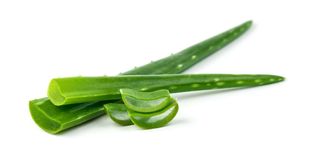Is Aloe Vera juice really the wonder drink that we keep hearing about?

Is Aloe Vera juice really the wonder drink that we keep hearing about? Photo | Photosearch
What you need to know:
It’s known as a cooling herb in both Ayurvedic and traditional Chinese medicine, and is hailed as a cure for inflammation
Some of you have probably come across aloe vera gel – it’s been used for centuries for various skin conditions from burns to infections, and it really is fantastic. Aloe plants are pretty inexpensive, so it’s a good idea to have one at home (and since it’s a cactus, it doesn’t need much watering). All you need to do is break off a leaf and use the clear gel that oozes out.
But the stuff that’s being advertised of late is the juice. Please don’t think that this means squeezing out the gel and adding it to your orange juice. This is what one of my poor patients had to endure from her well-meaning mother-in-law. Not what the doctor ordered at all!
The juice is made using a special process that extracts the goodness from the whole aloe leaf (which has a much higher nutrient content than the gel). A lot of products on the market use a high-heat process to stabilise the juice and, as a result, lose a lot of the goodness. To make sure you’re not getting one of these inferior products, look for the seal of the International Aloe Science Council (IASC).
So assuming you have the juice, what should you expect? Well, it’s not for the faint-hearted: drinking aloe makes your insides feel like they’re coated with petroleum jelly! But the benefits are definitely worth it if you’re suffering from any sort of inflammation in the body (it’s actually known as a cooling herb in both Ayurvedic and traditional Chinese medicine).
If you suffer from an inflammatory bowel disorder like Crohn’s disease or colitis, or stomach ulcers, aloe vera juice really can help. I regularly prescribe it to help soothe the inflammation and reduce bloating. The fact that it also helps to improve usually-compromised nutrient absorption, while boosting the patient’s immune system is an added bonus. In fact, recent studies have also shown that aloe has some promising results for cancer and HIV patients.
Aloe vera juice can also be useful for diabetics. Not only has it been shown to lower blood sugar levels, but recent work by Dr Lawrence Plaskett, a leading UK biochemist, also suggests that its anti-inflammatory effects may also be useful in the developmental stages of Type I diabetes.
While aloe vera juice can also be used as a laxative, I generally don’t use it as such, largely because it is so potent. Such laxatives, if used in excess, have been shown to contribute to colorectal cancer. If you do find yourself using a lot of laxatives, plant-based or otherwise, it may be worth seeing a doctor to establish the cause. For example, constipation is common in individuals with an underactive thyroid.




